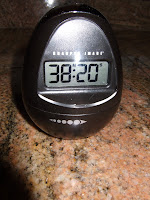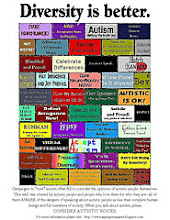Executive function! Where is it when you need it?
 So it's first thing in the morning and you need to get the children ready for school. Why should this be so incredibly difficult? Short of getting everyone up at four in the morning, how are you ever going to get them ready on time? Dress them in their school uniform when they go to bed the night before perhaps?
So it's first thing in the morning and you need to get the children ready for school. Why should this be so incredibly difficult? Short of getting everyone up at four in the morning, how are you ever going to get them ready on time? Dress them in their school uniform when they go to bed the night before perhaps?
How often do you need to issue a simple verbal instruction? Dare we count? How often do we count? Do you count? Do you count and curse under your breath? How many children do you have, as that might affect the outcome? Do any of them have any kind of disability that might affect the result? What kind of disability? Is the disability relevant to their ability to follow through?
Lets take a couple of small examples, such as ‘put your socks and shoes on,’ or in the alternative, ‘clean your teeth and brush your hair.’ Pretty simple language, you’d have to be a complete idiot not to understand either or those right? There again, maybe you just have a bad child, a disobedient / no respect for elders and betters kind of a child? Let's ignore the fact that both are two step instructions and the complications they induce.
Perhaps you just have a day dreamer, the kind that just can’t stay on task and are easily distracted? Could be that they’re just sleepy, got out of the wrong side of the bed or they’re not early birds but night owls?
How do you get this kind of rabble to pay heed? I should ‘wake up and smell the…..tea!’ but they’re American and still small. Very well, we’re in America so perhaps I should crack the whip and yell “ya hoo!’ and well I might, but first I’ll have to become competent with my lasso to round them up in the first place. Lets face it, I’m failing fast around here.
Now I would be the first to admit that I hate jargon, as well as all that psychobabble, but sometimes, if one can grasp the meaning, it can work as a kind of short-hand, that helps focus a parent’s addled brain. In this particular instance, for current purposes only, we can think of executive function as the ability to
A] formulate plans
B] take action on those plans
C] delay action when need be
D] operate on multiple levels
E] integrate all of the above and move between them
So why exactly am I torturing you with all this guff? Well, if you’re like me, you don’t have the time to research complex subjects written in technical language. Additionally, whilst originally I did research everything I could find on the subject of autism, my knowledge has always been a bit spotty. Also, what was of crisis level relevance a while back, can sometimes wane, before it rears up again to bite you when you least expect it. Lastly, I need to remind myself of the basics that are so all encompassing.
There is nothing like watching your child put a second set of clothes on over the first set, his brother's set, that he's already put on like a corset, to remind you of quite what you're dealing with. Or there is the child that puts his underwear on over the trousers, when he's not pretending to be a superhero.
I should add that a claim of "executive dysfunction," should not be used as an excuse for being grumpy, as "abfh"
so elegantly describes.
To finish, let me give you another tiny example. After listening to the instruction ‘put on your socks and shoes,’ a few seconds later, he remarked “my hole! It has a sock!” He said this to his father, not the ether. He held up the offending sock at the same time that he spoke, to help reference his audience. He recognized that it was a sub standard sock and chose to communicate this information verbally, rather than having a meltdown, or alternatively, cared sufficiently to mention it at all. When he used the words that he did, he had them the wrong way around, but he used words like ‘my’ and ‘it,’ which he usually skips completely. He didn’t yell, nor mutter sotto voce, attempt to repeat it louder and or give up and have a meltdown.
Yes, I know it’s really tiny in the great scheme of things, but there are so many teeny tiny little bits and bobs for him to keep together at the same time, it's not surprising if the odd chunk remains out of his grasp! But with a smidge of understanding from a parent, minuscule miracles can drown you every day.
It would appear that a "significant" percentage of parents of autistic children, have similar difficulties! So maybe we need to therapize ourselves first?
[Ref 1] Helping a Child with Nonverbal Learning Disorder or Aspergers Syndrome by Kathryn Stewart, Ph.D.
I read this book a few years back because of the ‘non-verbal’ tag because no-one was chatting very much around here.












